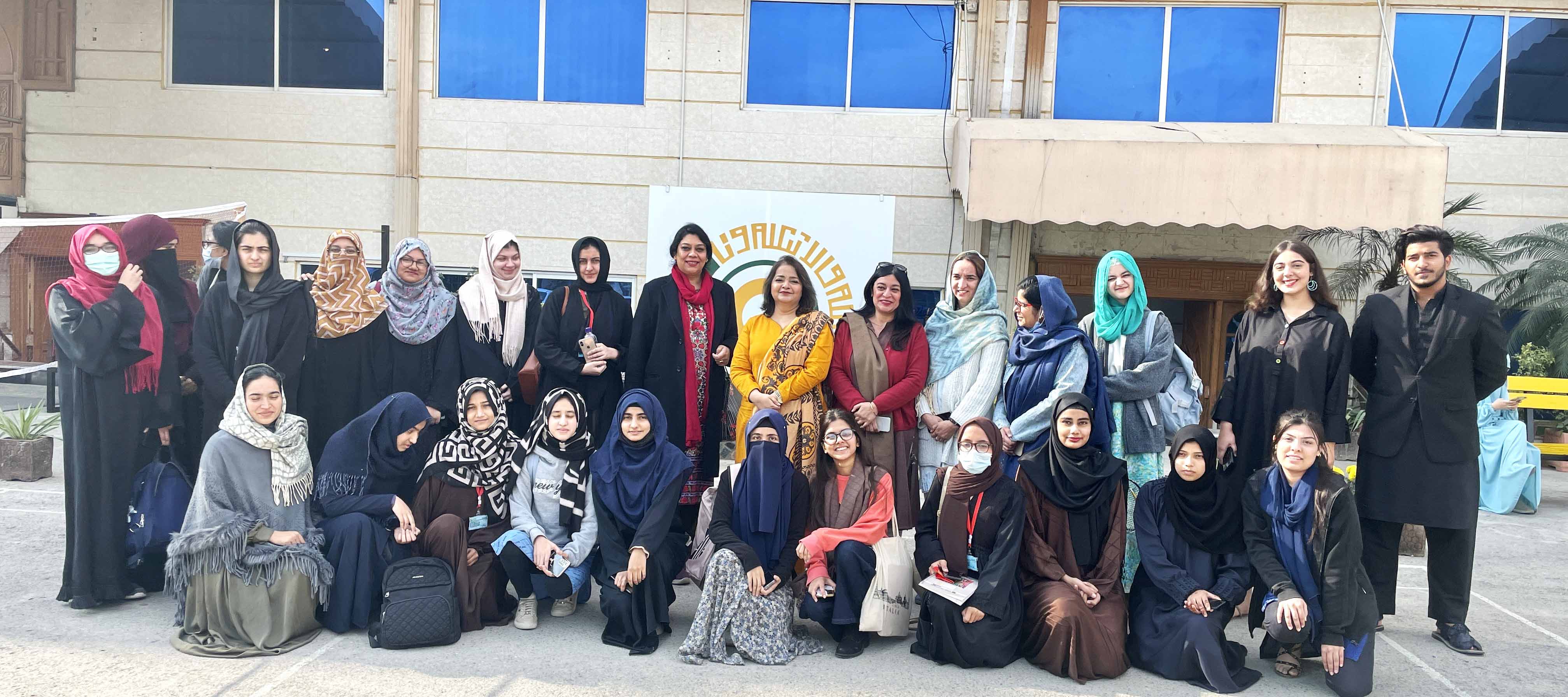
The Quality Assurance (QA) Directorate, National University of Medical Sciences (NUMS), in collaboration with Green Star Social Marketing (GSM), organised a trickle-down training to promote and safeguard the sexual and reproductive health (SRH) of young students of NUMS.
‘Khud ko Pehchaano’, a youth empowerment initiative of Green Social Marketing (GSM), Punjab Population Innovation Fund (PPIF) and Population Welfare Department (PWD), focused on better health outcomes by promoting sexual and reproductive health literacy (SRHL). The COVID-19 pandemic has exposed and worsened vulnerabilities in many countries’ health infrastructure and inequities in access to healthcare around the world, including for SRH. Universal health coverage (UHC) is crucial for rebuilding and strengthening national health systems and delivering quality health care to communities, and SRH care is key to achieving UHC in Pakistan.
A total of twenty master trainers from NUMS, trained through a formal training session on Oct 26, 2022, further taught NUMS students in seven onsite sessions held at the PWD campus. The health promotion training for students of NUMS was led by Dr Erum Monis, Dr Hina Shan, Dr Abdul Momin, Dr Shaista Aslam, and Ms Huzaiffah Akram. The trainers shed light on the family planning landscape in Pakistan, the latest statistics, knowledge, skills, and beliefs necessary to lead to physical, mental, and social well-being. Sexual and reproductive health awareness is an educational approach relevant to young peoples’ existing sexual and reproductive health needs and concerns. Education about SRH provides information and empowers young adults to protect themselves from sexually transmitted infections (STIs), such as syphilis, Hepatitis B & C, and AIDS.
Dr Abdul Momin, Assistant Professor, Department of Nutrition and Dietetics, introduced the basic knowledge about Sexual and Reproductive Health and Rights (SRHR). He talked about Sexual and reproductive health (SRH) as a globally recognised fundamental health concern and a basic human right, which is poorly addressed and seldom researched in the developing world.
Dr Shaista Aslam, Assistant Professor Department of Biological Sciences, highlighted how premarital screening and genetic counselling could prevent and manage medical and other health risk factors known to impact pregnancy outcomes. Dr Hina Shan, Assistant Professor Department of Public Health, talked about healthy timing and pregnancy spacing that reduces maternal and infant mortality, morbidity, and adverse pregnancy outcomes. Ms Huzaiffah Akram, Assistant Professor Department of Public Health, presented the modern methods of contraception, myths, and misconceptions about family planning. Ms Huzaiffah shared the statistics on the proportion of young women reporting unintended pregnancy and the unmet need for contraception.
Dr Erum Monis, Deputy Director of Quality Assurance Dte, member Inquiry Committee Protection Against Sexual Harassment at Workplace, highlighted Gender-Based Violence (GBV) & mitigation strategies. Dr Erum Monis explained how GBV, a phenomenon deeply rooted in gender inequality, continues to be one of the most notable human rights violations within all societies. Both women and men experience gender-based violence, but most victims are women and girls.
The efforts of Dr Erum Monis and Dr Hina Shan and faculty members were appreciated by Air Cdre Muhammad Ismail, SI (M), (Retd) Consultant Quality Assurance, NUMS. Health literacy on SRH save lives and the future of young people as it is the self-perceived ability of an individual to access the needed information, understand the data, and appraise and apply the knowledge to informed decision-making for overall well-being.
.jpg)
.jpg)
.jpg)
.JPG)
